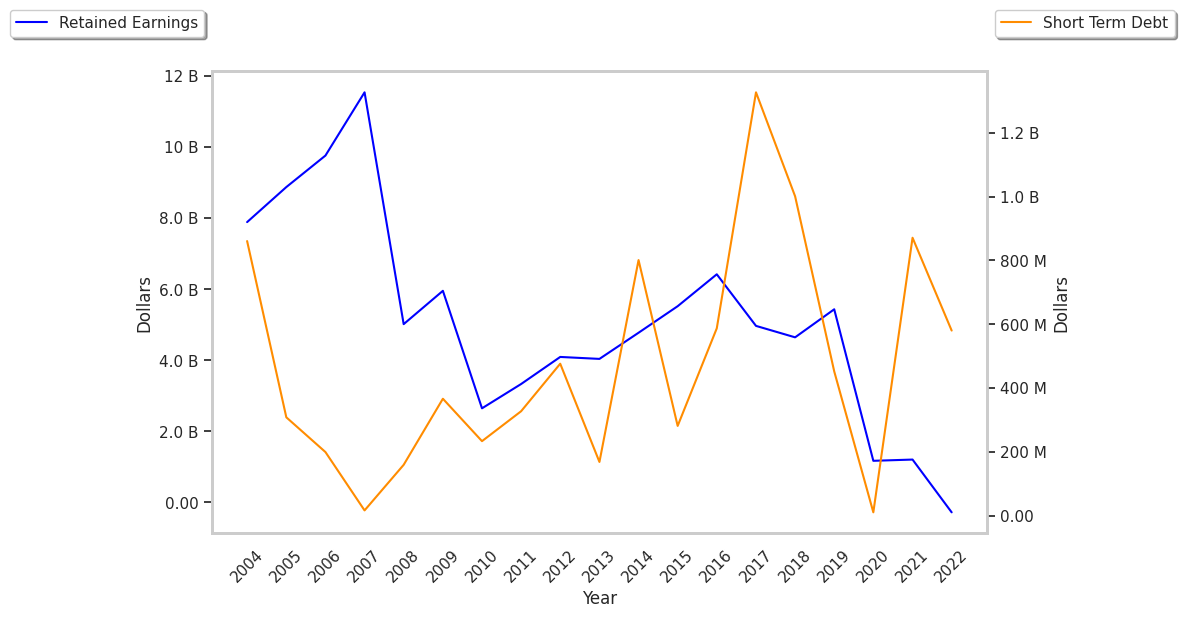Now trading at a price of $152.38, Cardinal Health has moved -0.4% so far today.
Cardinal Health returned gains of 38.5% last year, with its stock price reaching a high of $168.44 and a low of $106.54. Over the same period, the stock outperformed the S&P 500 index by 23.7%. More recently, the company's 50-day average price was $159.01. Cardinal Health, Inc. operates as a healthcare services and products company in the United States and internationally. Based in Dublin, OH, the Large-Cap Health Care company has 53,084 full time employees. Cardinal Health has offered a 1.3% dividend yield over the last 12 months.
EPS Trend Sustained Primarily by Reducing the Number of Shares Outstanding:
| 2019 | 2020 | 2021 | 2022 | 2023 | 2024 | |
|---|---|---|---|---|---|---|
| Revenue (M) | $145,534 | $152,922 | $162,467 | $181,326 | $204,979 | $226,827 |
| Gross Margins | 5% | 4% | 4% | 4% | 3% | 3% |
| Net Margins | 1% | -2% | 0% | -1% | 0% | 0% |
| Net Income (M) | $1,363 | -$3,696 | $611 | -$938 | $330 | $852 |
| Net Interest Expense (M) | $294 | $238 | $180 | $147 | $84 | $51 |
| Depreciation & Amort. (M) | $1,000 | $913 | $783 | $692 | $692 | $710 |
| Diluted Shares (M) | 294 | 295 | 281 | 261 | 246 | 243 |
| Earnings Per Share | $2.59 | $4.04 | $2.08 | -$3.37 | $1.26 | $3.45 |
| EPS Growth | n/a | 55.98% | -48.51% | -262.02% | 137.39% | 173.81% |
| Avg. Price | $41.96 | $46.6 | $50.69 | $53.01 | $100.8 | $152.95 |
| P/E Ratio | 16.14 | 11.53 | 24.25 | -15.73 | 79.37 | 43.95 |
| Free Cash Flow (M) | $2,394 | $1,585 | $2,029 | $2,788 | $2,363 | $3,251 |
| CAPEX (M) | $328 | $375 | $400 | $387 | $481 | $511 |
| EV / EBITDA | 5.75 | -5.22 | 13.47 | 182.08 | 16.77 | 20.76 |
| Total Debt (M) | $6,742 | $6,720 | $5,342 | $4,685 | $3,535 | $7,062 |
| Net Debt / EBITDA | 1.66 | -0.94 | 1.74 | 12.13 | -0.73 | 1.67 |
| Current Ratio | 1.03 | 1.17 | 1.15 | 1.04 | 0.98 | 1.02 |
Cardinal Health has growing revenues and increasing reinvestment in the business, generally positive cash flows, and healthy leverage levels. However, the firm suffers from slimmer gross margins than its peers and EPS growth achieved by reducing the number of outstanding shares. Finally, we note that Cardinal Health has just enough current assets to cover current liabilities, as shown by its current ratio of 1.02.
Cardinal Health's Valuation Is in Line With Its Sector Averages:
Cardinal Health has a trailing twelve month P/E ratio of 24.7, compared to an average of 22.94 for the Health Care sector. Based on its EPS guidance of $8.64, the company has a forward P/E ratio of 18.4. According to the 18.8% compound average growth rate of Cardinal Health's historical and projected earnings per share, the company's PEG ratio is 1.31. Taking the weighted average of the company's EPS CAGR and the broader market's 5-year projected EPS growth rate, we obtain a normalized growth rate of 13.2%. On this basis, the company's PEG ratio is 1.86. This suggests that these shares are overvalued.
Analysts Give Cardinal Health an Average Rating of Buy:
The 13 analysts following Cardinal Health have set target prices ranging from $150.0 to $203.0 per share, for an average of $180.46 with a buy rating. The company is trading -15.6% away from its average target price, indicating that there is an analyst consensus of some upside potential.
Cardinal Health has an average amount of shares sold short because 3.1% of the company's shares are sold short. Institutions own 88.5% of the company's shares, and the insider ownership rate stands at 0.3%, suggesting a small amount of insider investors. The largest shareholder is Vanguard Group Inc, whose 13% stake in the company is worth $4,659,295,553.



